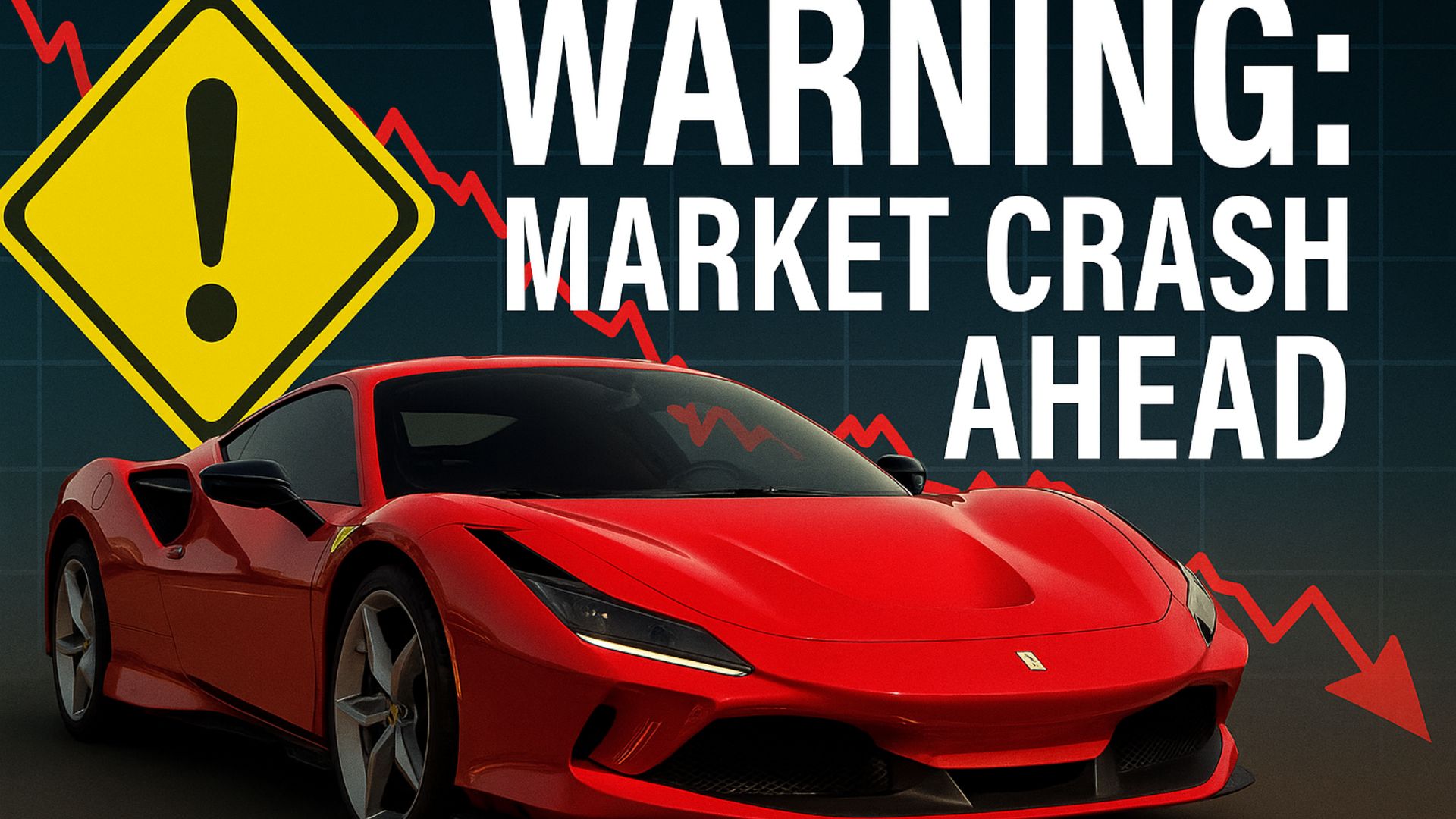Collector Car Market Dips Further; Experts Sound Alarm on Rising Risks

Understanding the Current State of the Collector Car Market
The collector car market has experienced a significant cooling period, marked by a month-long pause that has led to a notable decline in activity. The Hagerty Market Rating, which serves as an indicator of market health, is currently hovering in the high 50s. The latest reading of 59.82 represents a decrease of 0.45 points, signaling the first sustained drop into “flat” territory in nearly five years. This shift is particularly concerning given the broader context of the Hagerty Market Index, which tracks long-term trends and has been on a downward trajectory. The index has declined in 28 of the past 30 months and is now down 16% from its late-2022 peak.
As the summer auction season progresses, the overall activity remains subdued. While approximately 5,000 sales continue each month, the total number of cars sold has seen a decline for the first time this year. The median auction prices have fallen for 26 consecutive months, currently resting at a nominal $27,300. When adjusted for inflation, these prices remain steady, offering little comfort to sellers who are navigating a challenging landscape.
Private-party transactions, however, present a glimmer of hope. Average sale prices have shown a slight upward trend, outpacing inflation. Despite this positive sign, only about 38% of cars sell above their insured values, marking a four-year low. This indicates that even in private sales, the market is not entirely buoyant.
Broader Economic Pressures Impacting the Market
This shift in the collector car ecosystem reflects broader economic pressures, including high interest rates, inflation, and cautious buyer sentiment. Market-watchers suggest that both buyers and sellers are re-evaluating their expectations. Few listings exceed their upper auction estimates, and most cars sell below reserves, highlighting a market that is increasingly risk-averse.
Strategies to Protect Your Investment
With the collector car market showing signs of a deeper downturn, longtime owners and speculators should prepare for the possibility of a more severe market correction. Here are several strategies to safeguard your passion and investment:
Know Your Market
Track key indicators such as the Hagerty Market Rating, Auction Median Price, and Private Sale Metrics. Be alert when annualized declines exceed 5%, as this can signal a potential shift in market dynamics.
Avoid Emotional Buying
Focus on cars you genuinely enjoy rather than just high-value collectibles. Save bidding wars for rare “blue-chip” models, not everyday classics.
Set Valuation Limits
Establish maximum prices based on recent private-party transactions rather than high-tier auction results. Never chase peak pricing in a falling market.
Ensure Liquidity
Avoid over-leveraging or relying on rising car values to fund future needs. Maintain an emergency fund separate from your car investment to provide financial flexibility.
Prioritize Maintenance Over Restoration
In downturn conditions, allocate funds for upkeep rather than cosmetic restorations that rarely recoup costs. Focus on preserving the value of your vehicle through regular maintenance.
Consider Insurance Adjustments
Re-evaluate insured values regularly, especially amid inflated valuations. Hagerty data suggest fewer increases, so ensure premiums match realistic replacement costs.
Time the Sale Strategically
Selling near hobby events or major auctions can help, but avoid listing during low-activity months. A sharper market dip may require patience; aggressive pricing may be necessary.
Diversify Your Portfolio
If your collector car represents more than 10% of your net assets, it’s time to reassess. Spread investments across classic, performance, and modern collectible tiers to mitigate risk.
Prepare for Worst-Case Scenarios
If a market crash occurs, consider protecting your upside by downsizing to more affordable models with stable demand. This approach can help preserve your investment while maintaining access to the hobby.
Embrace Enthusiast Community
Enjoy your car, attend clubs, and drive seasons. Passion-based ownership is the greatest hedge against volatility, providing a sense of fulfillment beyond financial gains.
Conclusion
Collector car owners face a maturing and cooling market. By tracking trends, valuing wisely, maintaining liquidity, and staying grounded in passion over speculation, enthusiasts can not only survive but thrive even if prices slide further. The key lies in adapting to the changing landscape while preserving the joy and value of collecting.